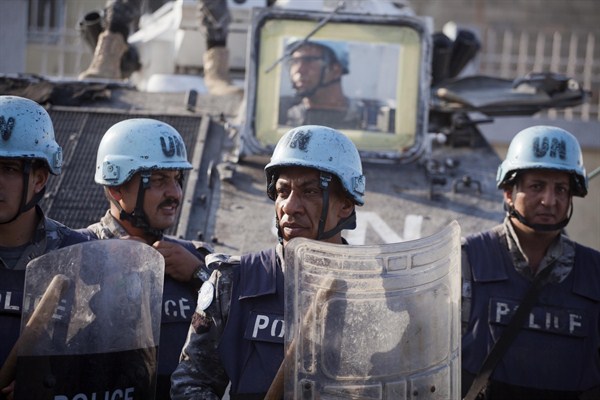Editor's note: Guest columnist Jim Della-Giacoma is filling in for Richard Gowan, who is on leave until early April.
Prevention has long been a dirty word at the United Nations: Some member states equate it with interference, and the need for early warning that accompanies it with spying. But in a time of crisis, some think the time has come to reconsider what role the world body should play in stopping conflict before it happens.
It is hard to argue against the idea that preventing conflicts from breaking out is better than dealing with their tragic consequences. Take those currently enveloping the Middle East in Libya, Syria and Yemen, where the counterfactual is strong, if hard to prove. If they had been prevented, hundreds of thousands of deaths could have been avoided. And the international system would not now be paying such a high and unsustainable price to address the plight of the millions that have been displaced.

